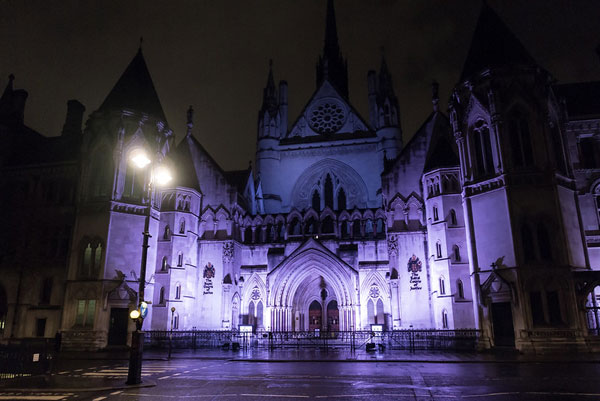F v G: Appeal against no-contact order allowed after allegations against father untested
 |
| Image: James Petts, licensed under CC BY 2.0. |
A father has had an appeal against a no-contact order allowed, after the court had proceeded without a fact-finding into allegations by the mother that he had engaged in domestic abuse, including physical abuse, emotional abuse, intimidation and threats.
The facts in F v G are important. They were as follows:
1. The parties met in 2008 and married in 2010.
2. They had two children, born in 2011 and 2013.
3. The family lived in the Far East and then in the United States of America.
4. The parents separated in 2017.
5. The mother applied to the court in the US for permission to relocate with the children to the UK. In May 2018 the US court made an order permitting the relocation. It also ordered a shared custody arrangement.
6. After that judgment the father indicated that he intended to move to the UK as well, so the US court had to reconsider the question of the father's contact arrangements. It ordered that the children should spend every other weekend with him, plus Wednesday to Friday in the intervening week.
7. In July 2018 the mother and children, and then the father, came to live in England.
8. In the early part of 2019, one of the children required an operation. At the pre-admission appointment at the hospital an incident occurred whereby the mother alleged that the father had behaved in an overbearing and abusive manner, and that he had slammed a door into her when he was carrying the youngest child in his arms.
9. In March 2019 the mother applied for a child arrangements order in the English court.
10. As mentioned, the mother made abuse allegations against the father. Initially at the FHDRA she applied for there to be a fact-finding hearing, but that application was withdrawn.
11. A Cafcass report was prepared. The Cafcass officer found that the younger child was resistant to spending time with his father, and that that resistance was justified, based on the boy's direct experience of his father, including witnessing domestic abuse perpetrated by his father against his mother. The officer said he had come to the opinion that domestic abuse was likely to have occurred since the end of the relationship, and that the mother was currently experiencing coercive and controlling behaviours. He concluded that the children and their mother needed a break from direct arrangements whilst the father took responsibility for addressing his behaviour.
12. At a hearing in January this year the judge accepted the Cafcass officer's recommendations, and decided that direct contact should cease for the time being. He made a number of findings of fact against the father, including that the father had been physically violent to the mother. He also restricted the father's parental responsibility, by ordering that the father be excluded from making decisions with respect to the children's education and health.
13. The father appealed, arguing, amongst other things, that the judge was wrong to make findings in circumstances where the parties had agreed that there would not be a fact-finding hearing, that he relied on the Cafcass recommendation when that was based on the officer's own assessment of the facts, and that he was wrong to make the decision he did, terminating direct contact, without sufficient exploration of other types of contact, including supervised contact.
The appeal was heard by Mrs Justice Judd in the High Court. She concluded that the appeal should be allowed, for the following reasons:
1. The recommendation made by the Cafcass officer and accepted by the judge that there should be no direct contact was based upon the officer's clear view that the father had engaged in coercively controlling and abusive behaviour. The effect of there being a Cafcass recommendation based upon findings that were not formally being sought put the father at a disadvantage.
2. The Cafcass officer advised, and the judge found, that the children were suffering harm, but this finding was very much dependent upon the findings that the father was coercively controlling and abusive, rather than actual evidence of harm (the children were having regular contact with their father, and appeared to be functioning pretty well).
3. Lastly, the judge did not appear to weigh in the balance the harm that could be caused to the children by the immediate loss of their relationship with the father, which had to be set against the risks to the children and the mother of contact continuing.
The appeal was therefore allowed, and the case remitted for a rehearing.
The full judgment can be read here.
Comments
Post a Comment
Thank you for taking the time to comment on this post. Constructive comments are always welcome, even if they do not coincide with my views! Please note, however, that comments will be removed or not published if I consider that:
* They are not relevant to the subject of this post; or
* They are (or are possibly) defamatory; or
* They breach court reporting rules; or
* They contain derogatory, abusive or threatening language; or
* They contain 'spam' advertisements (including links to any commercial websites).
Please also note that I am unable to give advice.